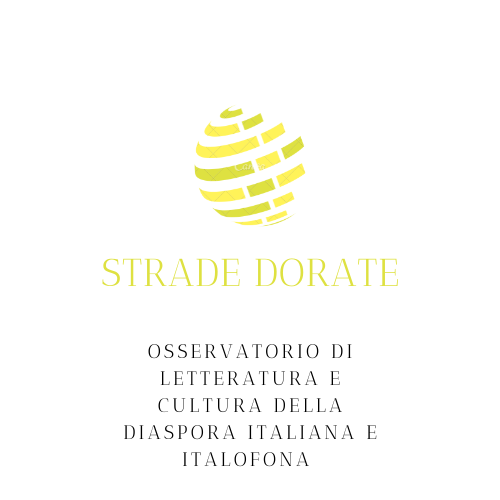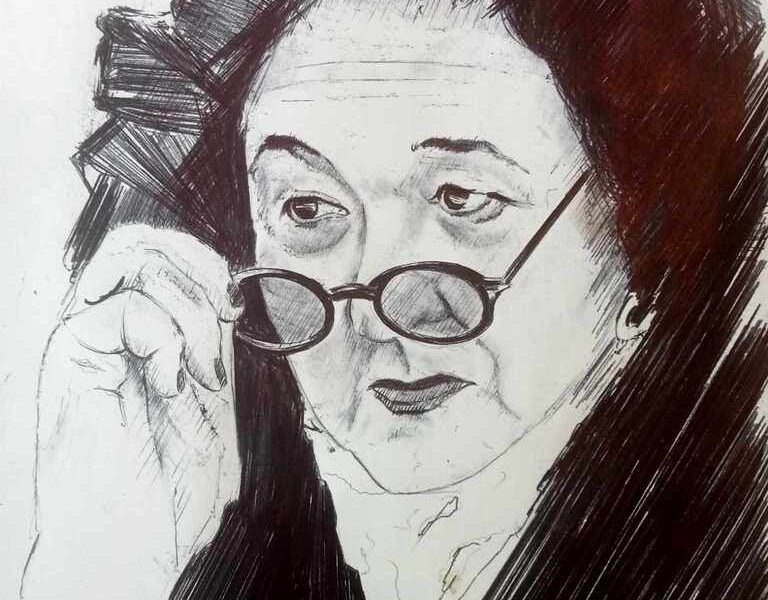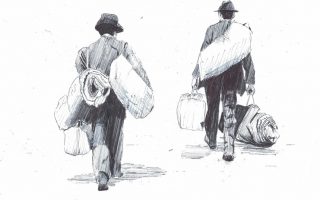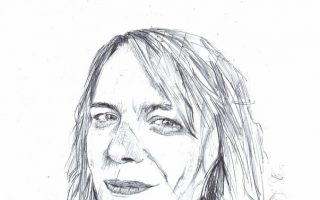by MICHELA VALMORI
Gianna Patriarca is an Italian Canadian writer and author, among the others, of “Italian Women and Other Tragedies”, which narrates an immigrant woman’s physical and emotional journeys. As Professor Anthony Tamburri confirms, ‘Patriarca succeeds in chronicling the gender aspect of her migratory Italian/Canadian existence’ as she escorts her reader along her journeys from Frosinone, Italy, to Ontario Canada. As her narrations, poetry and prose tell, women were considered as second-class citizens in this patriarchal, bicultural Italian Canadian world.
Born in Ceprano, in the Province of Frosinone, in Lazio, Italy, Gianna Patriarca immigrated to Canada as a child in 1960 with her mother and sister to join her father who had emigrated four years earlier. She is now an acclaimed author, having written thirteen books, poetry, short fiction and children’s literature which have received awards and recognition. She is also a regular contributor to Panoram/Italia magazine.
About a month ago, while working on my research, which includes the literary heritage of gender and Italian emigration and is now extending to Canada as a point of arrival, I decided to try to reach out to Gianna. Not having direct contact, I ended up using Facebook as my channel, doubtful as I was that I would get an answer. Not only did she get back to me in no time, but she also engaged in an enriching conversation that led to this enlightening interview a couple of days later.
What led you to Canada? And what made you decide to focus mainly on Italian immigrant women?
When I began writing, I simply wrote for the love of writing and it became an act of survival. It was the 1960’s, and Canada was not the country it now is, certainly not as welcoming to all of us as it may be today. I was nine years old, and I had not chosen to come to Canada, that choice was made for me. So, my reality and the trauma of my experience of this new land led me to write about who I was, what I felt, and what I was experiencing. The pen and paper became my voice, a friend who listened. What it later became, I suppose, was the writing of an Italian immigrant woman because that is who I was and who I am. The experiences around me at the time were mainly those of women, immigrants, the mothers of my friends and neighbours. They became the subject of my work because their extraodordinary lives moved me to write their stories and experiences.
You also concentrate on the relationship between Nonnas and granddaughters. Is it an autobiographical bond you recall with your stories?
Yes. The first eight years of my life were filled with my grandparents in our rural country home. My nonno gave me a love of storytelling, he was a great storyteller. Nonna gave me everything else, and of course those memories, that influence, will always be part of my writing. This is something I also shared with my mother as she influenced my daughter and all the grandmothers I knew and met while I was a school teacher and they would care for the grandchildren while parents were busy with work in the new country. These stories were so much a part of my life they could not help but enter my notebooks on a personal and creative level. From the 1960’s to the late 80’s when things began to change for women in society and our communities I was determined to write their stories to make them visible and heard. So yes, it cannot help but be somewhat biographical.
In your “Italian Women”, you describe a very patriarchal immigrant society. Is it something your experienced first-hand?
The patriarchal condition has a lot to answer for. Growing up an immigrant girl in the 60’s and 70’s Toronto we had few choices and non-existent voices. We were very much controlled and guided by a society of fathers, priests, politicians, by church, traditions, cultural practices and religions etc. etc. so yes, I experienced first-hand they social norms of the day, but I did not accept them easily, certainly not without a struggle. That is why I say my writing was an act of survival, because writing allowed me to be free in thought, in voice. It was my weapon and my shield, everything I could not express out in the world I could write about. This gave me some control over my own identity and survival along with education and reading. Ironically my last name is Patriarca.
If you could invite cultural criticism to tackle Italian Canadian gender literature from a diverse and more encompassing perspective, what would that be?
I don’t believe that Italian Canadian literature has been explored much or taken seriously into consideration; certainly not the literature of Italian/Immigrant women. We have struggled to have our voices heard and our work published. I’m not sure that either Canada or Italy is interested in our stories. I think because Italian/Canadians have been so successful in many areas of business and finance and have made great contributions to this country, our stories do not seem necessary or important. Even Italy, according to my publisher, is interested in Canadian literature but NOT Italian/Canadian literature. But there is always the hope that one day it may reach the public and its value will be recognized and given the respect and recognition it deserves. There is always hope we can go beyond the endless stories of pizza and gangsters.
On the cover: illustration by Massimo Carulli
Read it in italian by clicking here




